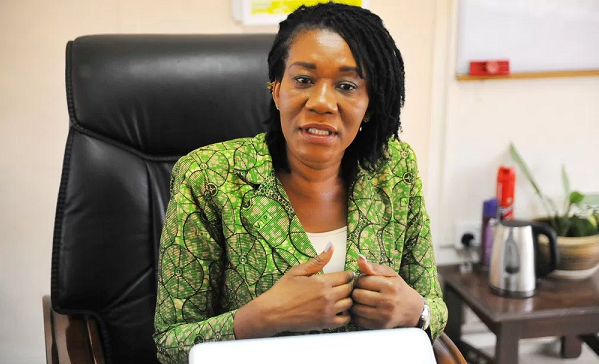
Our teen health, our health
President Nana Addo Dankwa Akufo-Addo launched the Green Ghana Day two years ago.
On Friday, June 9, 2023, we commemorated the second anniversary on the theme: “Our Forest, Our Health”.
Under the President and in collaboration with the Forestry Commission, the Ministry of Lands and Natural Resources, district assemblies, Rotary District 9102, the traditional authorities, parliamentarians and individuals, we have planted millions of seedlings throughout the country.
From 2021 to 2023, we have planted about 40 million seedlings.
We have achieved this because of the concerted effort by all to address one problem: deforestation, which threatens our survival.
Campaign
Launching a national project, Our Teen Health Our Health, as a Presidential Campaign against early pregnancy to protect our teen girls from teen pregnancy, child marriage and period poverty would be fantastic and relatively more straightforward.
This campaign will restore the health of our teenagers, help restore the health of our forests in the long term and ultimately restore our national or population health and productivity.
In Ghana, 76 per 1000 births are born by teenage mothers, between the ages 15 to 19 years, compared to 49 per 1000 globally.
According to the GHS, between 2016 and 2020, Ghana recorded 542,131 pregnancies among adolescents of 15 to 19 years and 13,444 pregnancies among 10 to 14-year-olds, not accounting for the unreported cases.
Teen pregnancy has a significant negative impact on society.
It forces teen mothers, their partners and their offspring to limit their educational attainment and skill development.
However, it does not restrict their desire to satisfy their basic needs.
Desperate to meet their basic needs, they may engage in risky ventures such as galamsey and deforestation to earn a living.
To that end, to sustainably maintain our forest, health, health bill, human dignity and well-being, it is vital that as a community, we address the problem of teen pregnancy and child marriage with the same concerted effort we have employed in addressing deforestation.
Determinants of early pregnancies include a lack of community responsibility, a lack of knowledge on how to avoid pregnancy, parental neglect, media influence, a lack of life and social survival skills, a lack of role models, cultural beliefs and the fear of contraceptives, among others.
We need to strategise to reduce teen pregnancy urgently, and a Presidential campaign against early pregnancies may go a long way in addressing this phenomenon of public health concern.
Recommendations
Below are a couple of recommendations we can work with:
•To ensure community responsibility, regular broadcasts about the disadvantages of early pregnancies (social, economic) on televisions and radios by influential people such as The President, Chief of Staff, The Speaker of Parliament, the Chief Justice, chiefs, religious leaders and political leaders (both in and out of government).
• In addressing the lack of education on avoiding pregnancy, we could consider nationwide menstrual cycle education and services for both in and out-of-school children as a good starting point.
Availability and accessibility of quality education, both academic and reproductive health, are critical.
• To improve life and social survival skills, we could consider regular local community seminars to sensitise children to enhance these skills.
• To ensure that our children have role models, old students should be employed to counsel, motivate and empower both boys and girls to say no to sex firmly, but stay on course in addition to financial contributions from old students.
• In addressing the fear of using contraceptives due to perceived side effects and religious beliefs, opinion leaders should be encouraged to accept that some teenagers are sexually active and embrace and advocate for the use of contraceptives to help avoid abortions or teen pregnancies.
Though some parents and peers were victims of early pregnancy and hence, perceived not to be able to stand firm against teen pregnancies, all should be involved in ending early pregnancy.
Similar to the tree-planting project, the government, community and family involvement can ultimately come together to reduce early pregnancies.
We must and should green Ghana because our forest sustains our health.
However, besides saving our forest, we must protect our youth from teenage pregnancy and child marriage.
Let us prioritise both our forest and our teen health.
The writer is the Executive Director, National Population Council.
